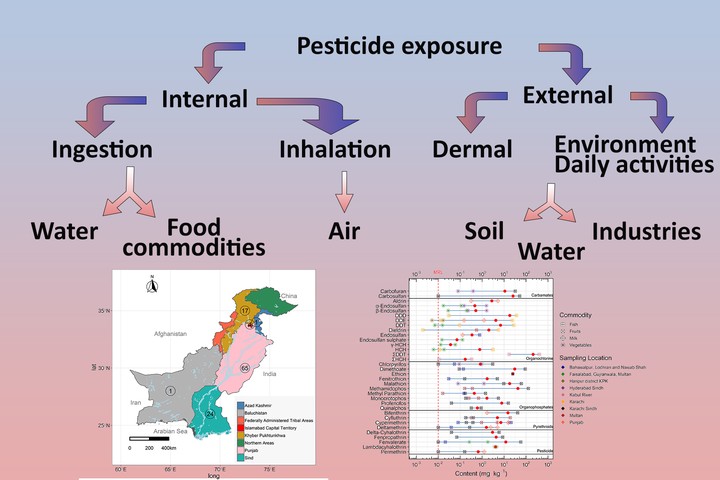Use, exposure, and environmental impacts of pesticides in Pakistan: A critical review
Abstract
The excessive use of pesticides is posing major threats to humans and the environment. However, the environmental exposure and impact of pesticides in Pakistan have yet been systematically reviewed, despite the country’s leading role in pesticide use. Therefore, this study identified and then reviewed 85 peer-reviewed scientific publications on the topic. It was found that, compared to the worldwide average, Pakistan had high consumptions of pesticides, with an alarming increase of 1169% in the last two decades. The quantities of pesticides used followed an order of pyrethroids>organophosphates>organochlorines>carbamates, but organochlorines were the most problematic due to their environmental occurrence, the ability to transport across the media, and identified human and ecological toxicities. Additionally, the misuse or overuse of pesticides by farmers is prevailing due to insufficient knowledge about the risks, which leads to high risks in occupational exposure. These issues are further aggravated by the illegal use or continuous impacts of banned organochlorine pesticides. For the future, we suggested the establishment of organized monitoring, assessment, and reporting program based on environmental laws to minimize contamination and exposure to pesticides in Pakistan. Remediation of the contaminated areas to mitigate the adverse environmental-cum-health impacts are recommended in the most affected regions.
